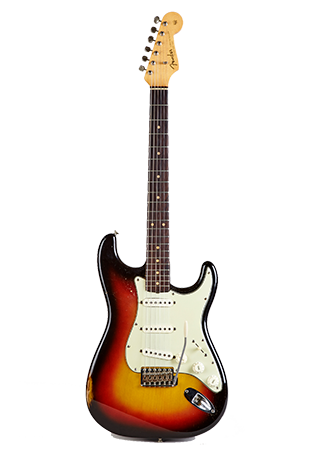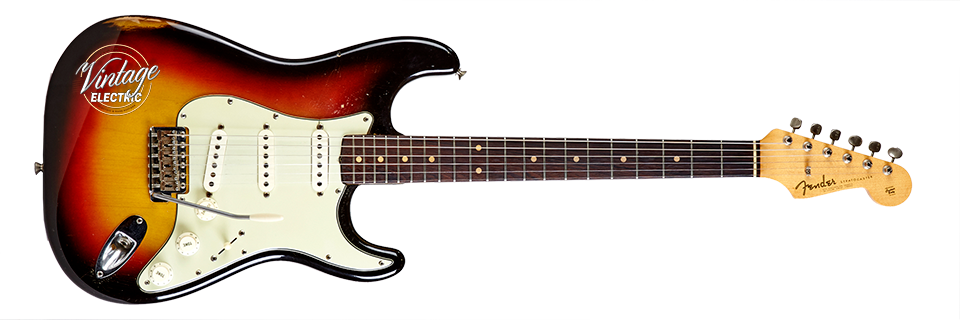L Series Stratocaster
The Evolution of the Stratocaster
This 1963 Fender Stratocaster arrives at your door with its original brown case including the original manual with matching serial number, L03963.
Owning this guitar is sheer pleasure from the minute you first open the case to the instant you hear it through your favourite amplifier.
Two-Piece Alder Body, Clean Maple Neck and Headstock wwith Original Kluson Tuners, Spaghetti Logo, Dark Brazilian Rosewood Fretboard, Clay Dots, Green Guard, L-Plate and Original Tremolo Arm.
1. Design and Evolution
By 1963, the Fender Stratocaster had evolved significantly from the early maple board equivalents.
Depending on your viewpoint of the L-series range, they were more refined after a few key evolutionary developments over the preceding decade.
In 1956/1957, Alder two piece bodies were introduced. Ash bodies were still maintained on some guitars. For example, all Transparent Blonde Stratocasters remained Ash.
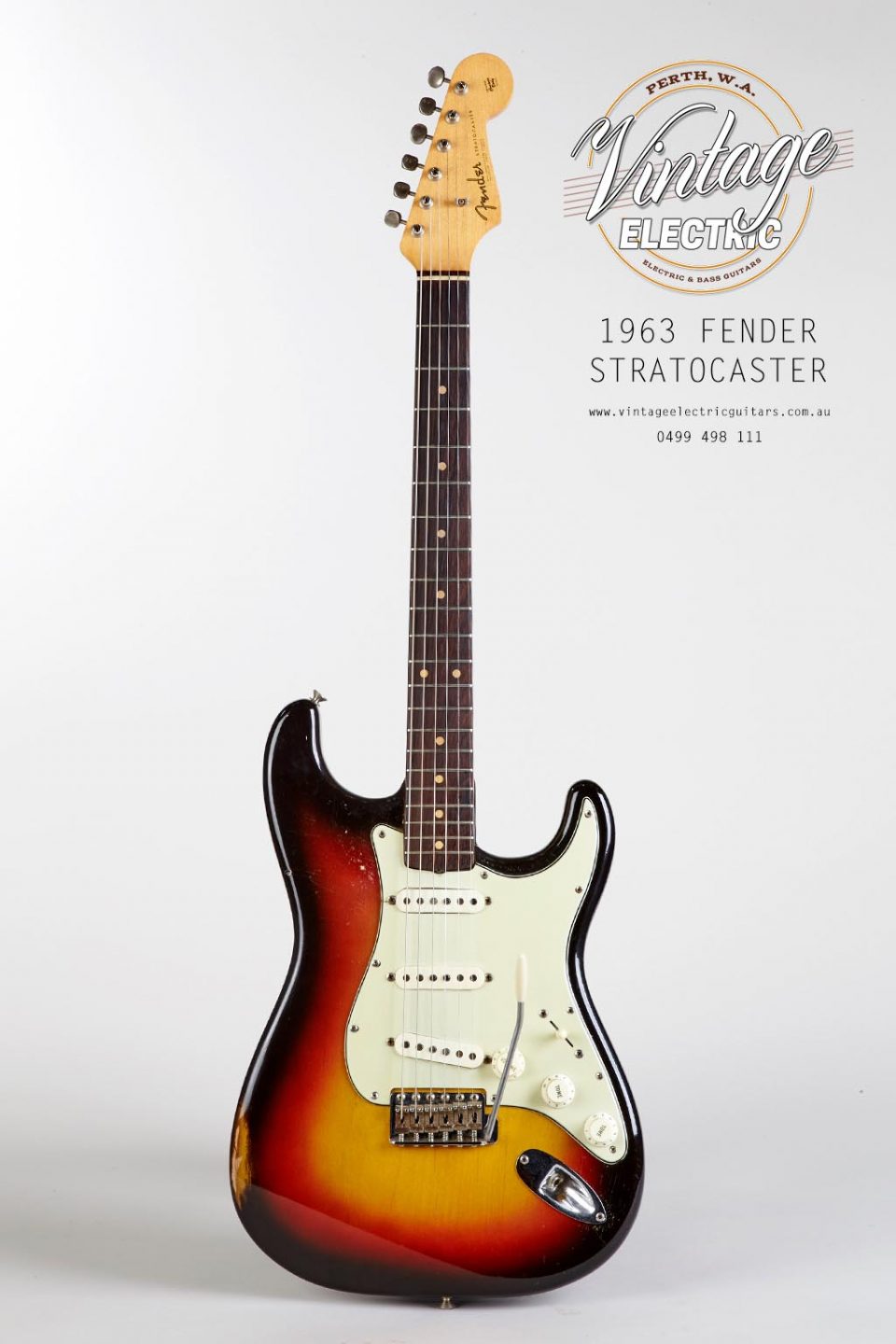
Mid way through 1962, Fender changed the design of the board from a slab with a straight bottom connected to the neck to a veneer which was curved over the neck at a 7.25″ radius.
2. Body and Composition
This particular vintage guitar has a two piece Alder body, a very smooth playing maple neck with a tasty Brazilian rosewood board.
The two tone sunburst finishes of the 1950’s had evolved into a darker three tone sunburst in 1960 models.
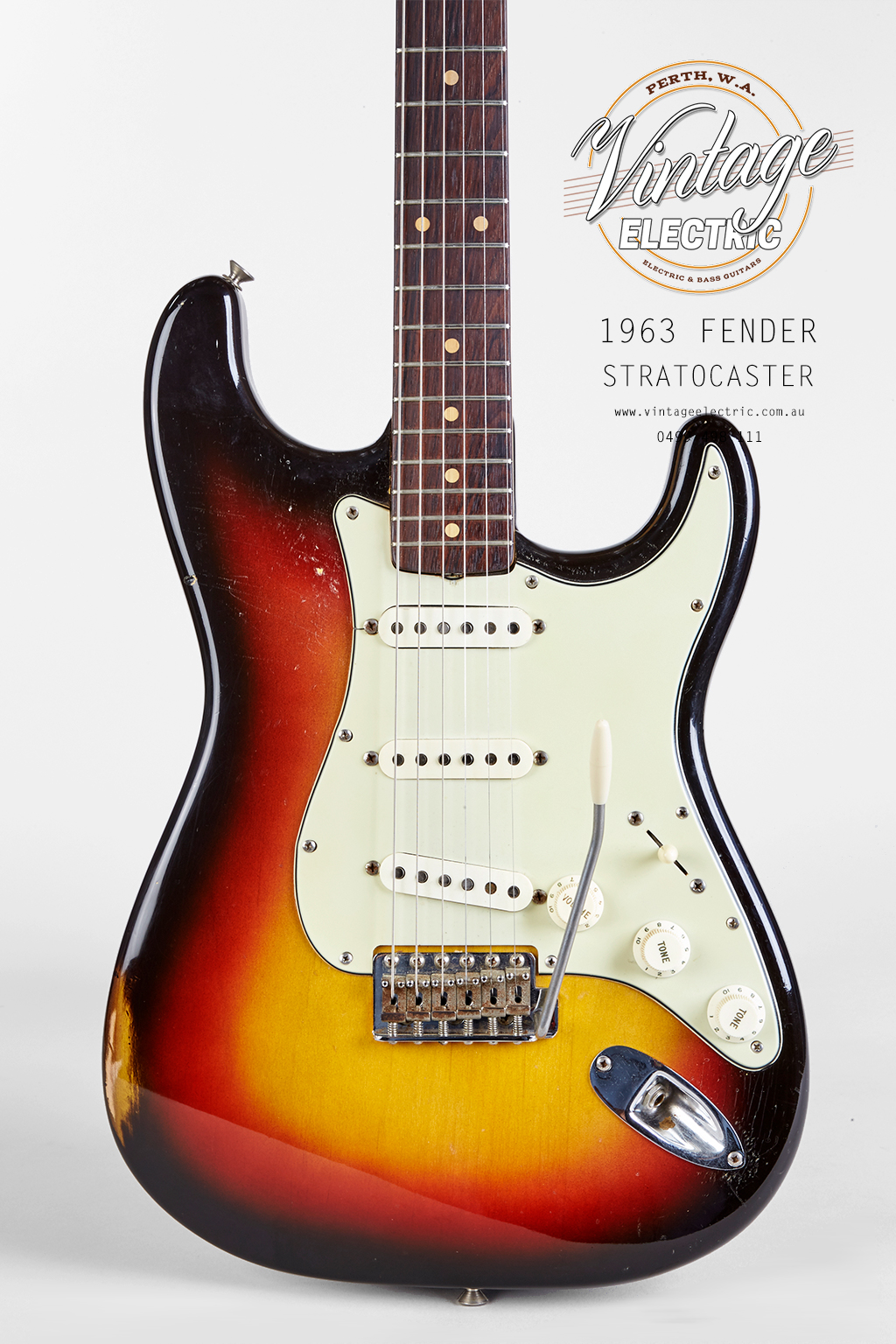
The close up picture in Figure 3 of the body of this guitar illustrates the strong colours still remaining intact in the 3 tone sunburst finish thanks to the nitrocellulose finish used on the guitars.
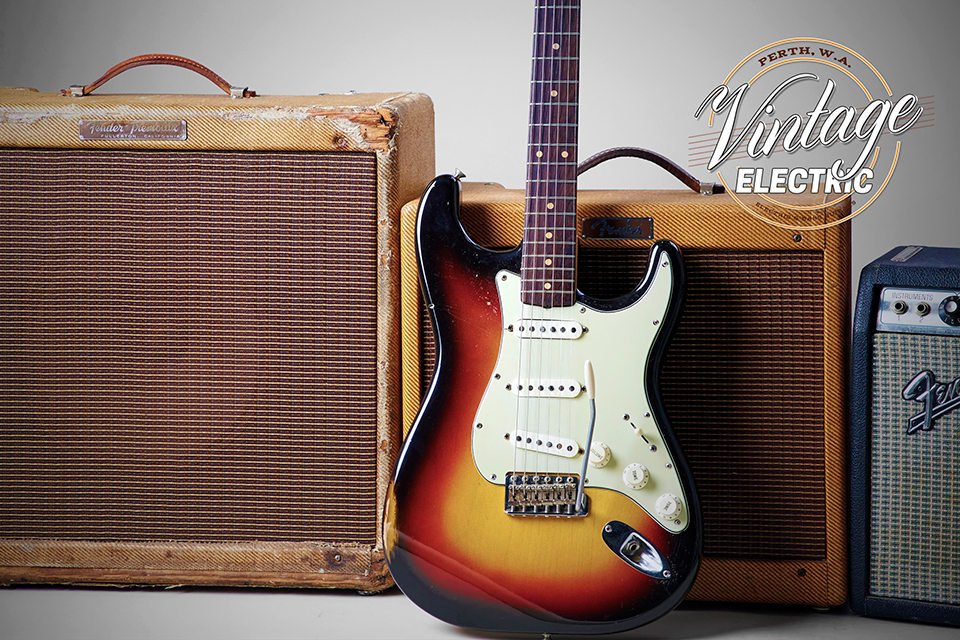
6 point tremolo system with original tremolo bar still in the case together with the original manual and allen key taped to it.
The white single-ply green guard has a slight crack on the neck pickup height adjustment screw, a common feature of Stratocasters throughout their history.
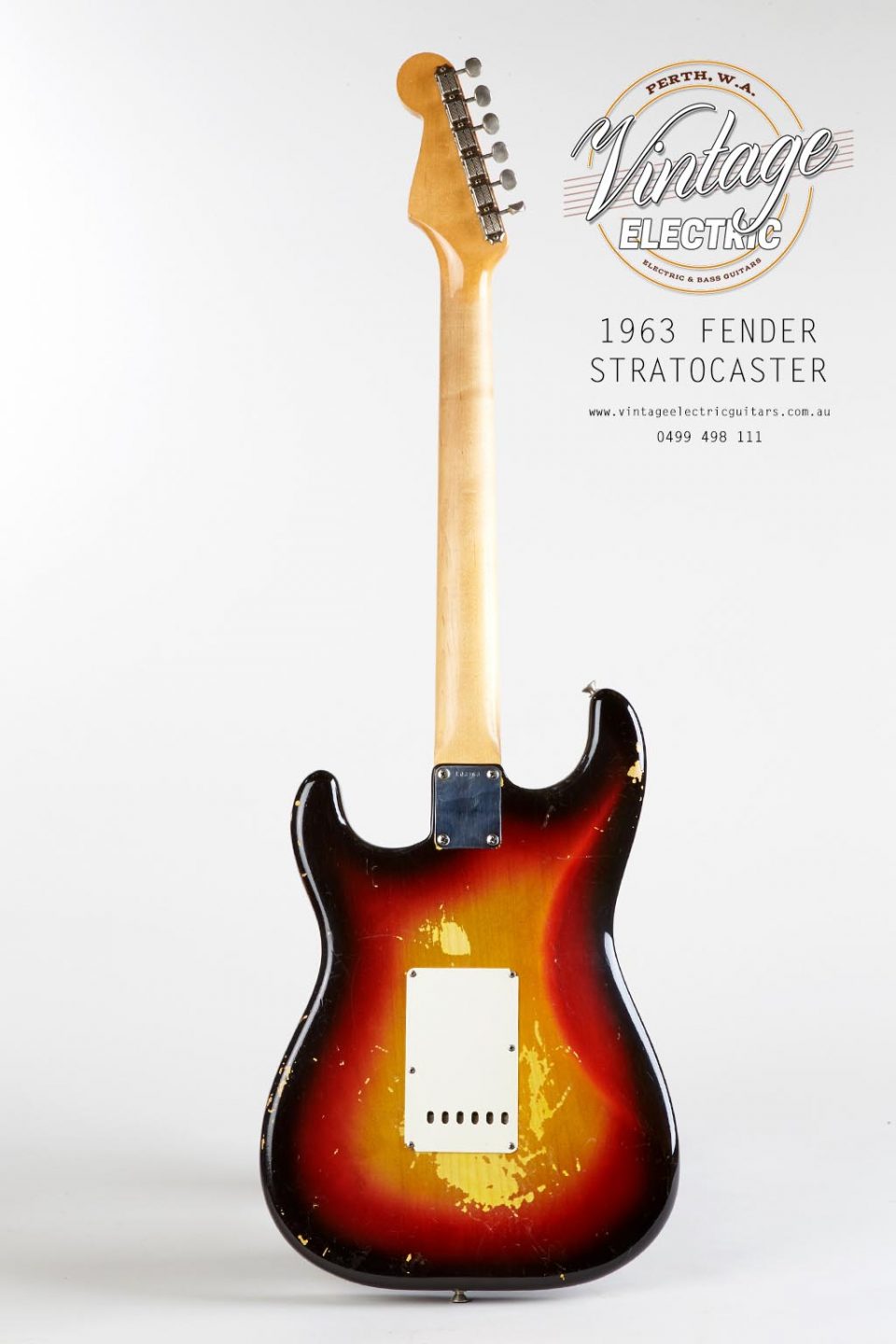
This piece shows significant play wear on the back of the guitar as evidenced in Figure 4. The back white plastic plate is missing two corners as seen. The L plate and screws are in great condition.
3. Neck and Headstock
The neck radius on Fender Stratocasters remained at 7.25″ radius in 1963. The headstock on this guitar is in perfect condition with the edges now sharper as opposed to the hand smoothed edges in 1954 and 1955.
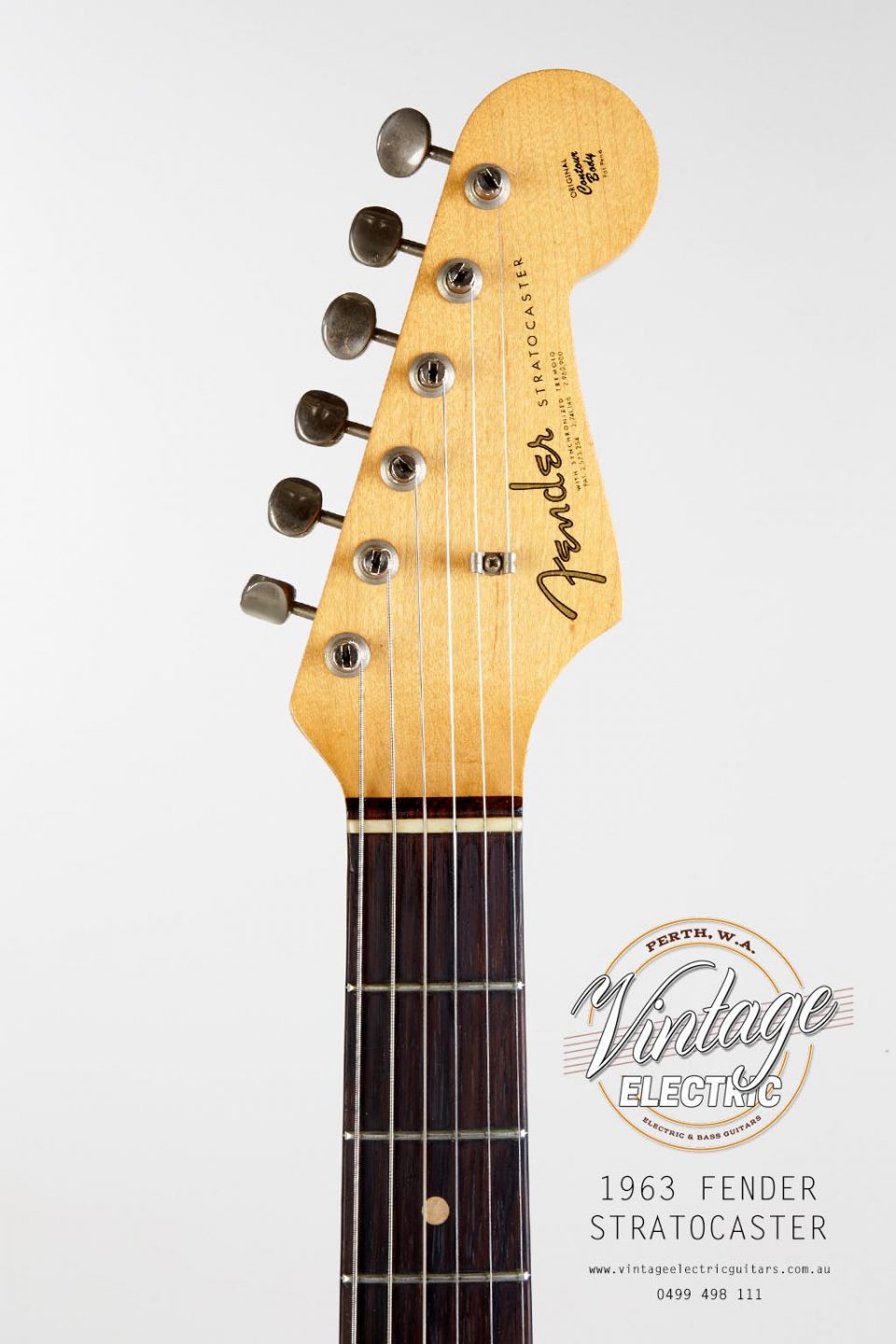
All things aside, this is one of the cleanest headstocks and necks in the Fender collection on this site.
The Brazilian rosewood board has clay dots for markers, and the headstock sports a perfect spaghetti logo. The Kluson tuners are in immaculate condition and have not left the headstock.
The frets are around 75-80% left. Provided you don’t want to bend like Gary Moore, the guitar plays beautifully with these original frets.
4. Case and Candy
One of the unique features of the guitar is the original brown Tolex case. In 1958 or 1959, Fender changed from Tweed to Tolex cases. Fortunately, this case included the original manual filled in by the original owner with the matching serial number. Taped inside the manual is the original Allen Key for adjusting the bridge saddle heights.
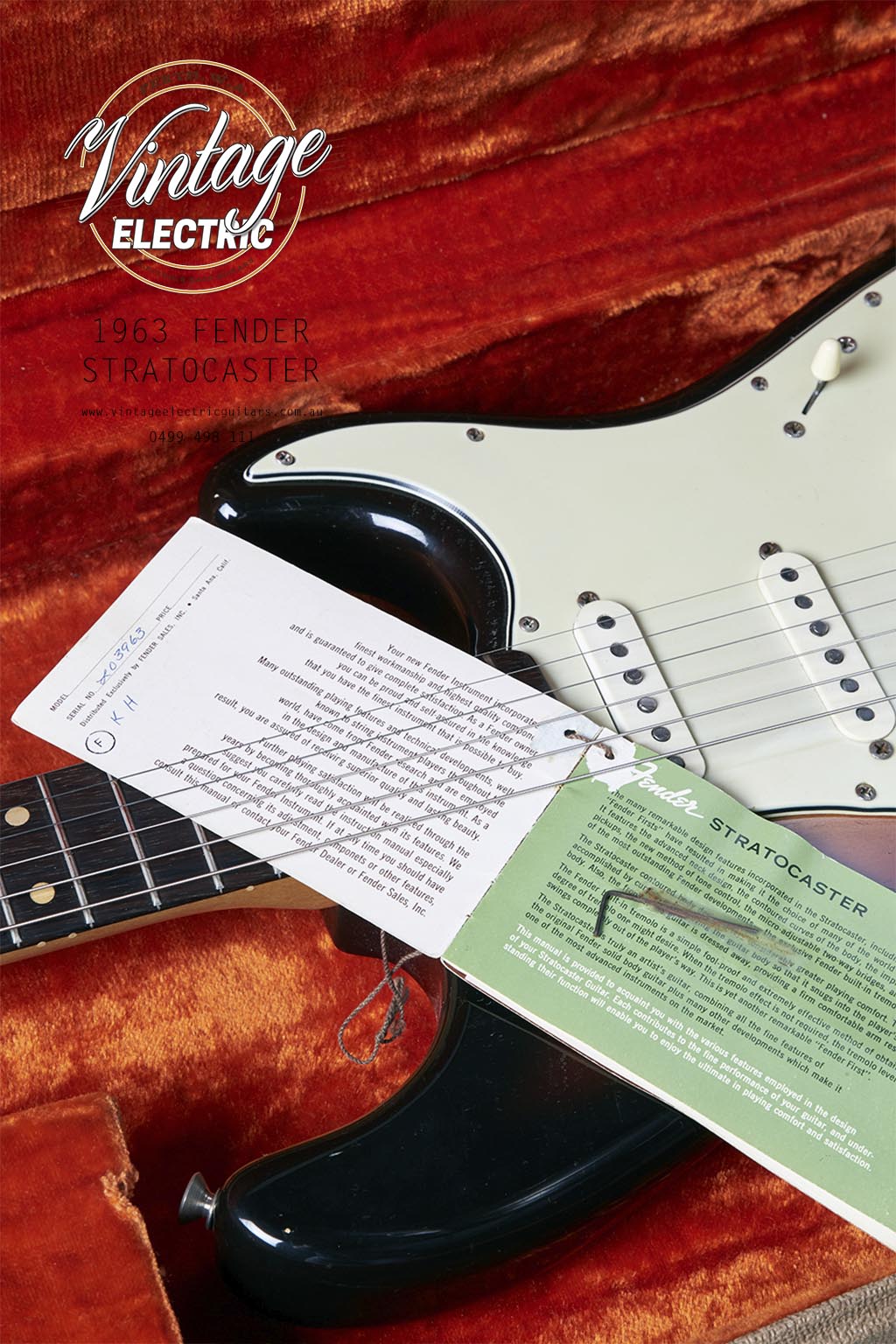
The original tremolo bar is also included with this guitar.
